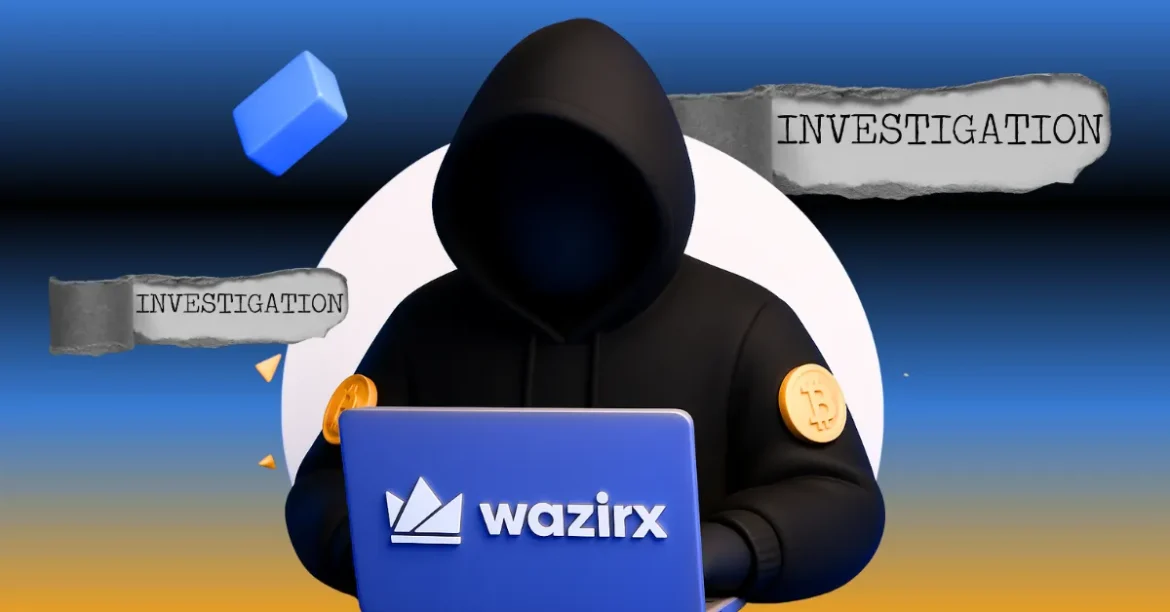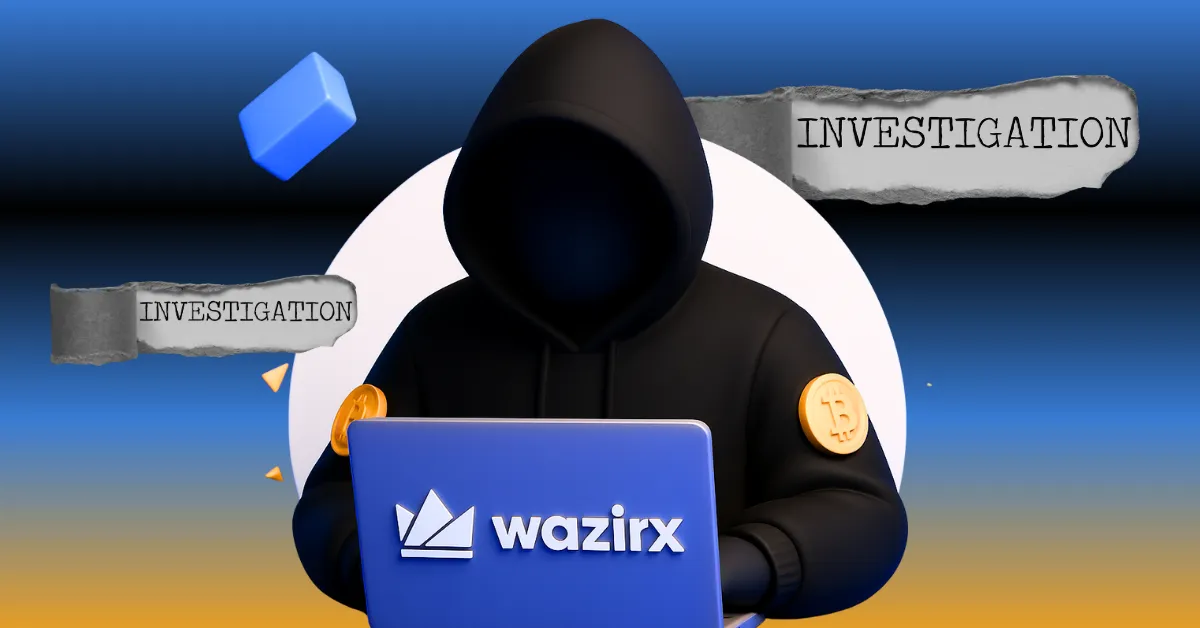The cryptocurrency exchange landscape in India, once vibrant and dynamic, faced a significant upheaval in 2024 due to a confluence of systemic vulnerabilities, strategic corporate maneuvers, and a catastrophic cyberattack. WazirX, once hailed as one of India’s premier crypto exchanges, became the epicenter of controversy with a $234 million hack, opaque ownership transfers, and a notable geographic shift in its operational base. This report dissects the key developments surrounding WazirX—its security breach, secret stake transfers, and regulatory and structural responses—to offer clarity on one of crypto’s most remarkable upheavals in recent history.
The July 2024 Cyberattack: A Blow to Investor Trust and Exchange Integrity
On July 18, 2024, WazirX was the victim of an extensive cyber breach, leading to the loss of roughly $234.9 million in digital assets. The hack exploited vulnerabilities in WazirX’s multisig wallet system—a method designed for enhanced security requiring multiple private keys to authorize transactions. Despite these safeguards, hackers managed unauthorized transfers to unknown wallets, leaving 15 million investors in financial limbo. This incident not only drained the exchange’s funds but also devastated user confidence and cast a long shadow over India’s burgeoning crypto sector.
In the immediate aftermath, trading services were suspended, and WazirX entered a phase of crisis management, announcing plans to issue recovery tokens to compensate affected users. However, the platform’s transparency increasingly came under scrutiny as users and regulators clamored for clear updates. The hack highlighted critical weaknesses in the exchange’s security infrastructure, raising questions about the effectiveness of multisig wallets and the need for more robust cybersecurity measures in the crypto industry.
Secret Stake Transfers: The UAE Filing and Ownership Shifts
Adding to the intrigue surrounding WazirX’s post-hack turmoil was a discreet corporate move revealed in August 2024. Founder Nischal Shetty reportedly transferred his entire 100% stake in Shinjuku FZC LLC—a company linked to WazirX and registered in the United Arab Emirates—to his wife, Moujhari Guha. What stood out most was the secrecy of this transfer: no public announcement, no communication to users, and no immediate disclosures to regulatory bodies.
This stake transfer can be viewed through multiple lenses. It might reflect a strategic repositioning amid regulatory pressures or an attempt to shield assets from legal scrutiny. Some interpret this as a calculated chess move in a rapidly shifting crypto regulatory landscape, while others consider it a sign of potential instability at the company’s leadership level. Regardless, the lack of transparency compounded users’ anxieties, feeding into narratives questioning WazirX’s governance and corporate ethics. The transfer also raised concerns about the potential for conflicts of interest and the need for clearer corporate governance structures in the crypto space.
Regulatory Environment and Legal Challenges: Singapore’s Role
WazirX’s corporate entanglements extend beyond India and the UAE, notably involving legal jurisdictions like Singapore and Panama. The platform’s parent company, Zettai Pte Ltd, based in Singapore, faced considerable challenges in executing its restructuring and recovery plans. The Singapore High Court notably rejected Zettai’s initial restructuring proposal, citing concerns related to regulatory compliance and the feasibility of the compensation scheme for affected users.
Further complicating matters is the impending implementation of Singapore’s Financial Services and Markets Act 2022 (FSM Act), effective June 30, 2025. Under this new law, entities like Zettai require a Digital Token Services Provider (DTSP) license issued by the Monetary Authority of Singapore to operate legally. Without this license, WazirX’s operational viability in Singapore remains uncertain. Court rulings have temporarily extended deadlines for restructuring, allowing the company to rework its proposals and meet user and regulatory expectations. A user meeting permission granted by the court suggests attempts to foster dialogue, yet tension remains high as users await concrete resolutions on fund recovery.
Strategic Relocations: Dubai and Panama as New Crypto Havens
Amid mounting regulatory pressures and hostile tax environments—India’s imposition of a 30% crypto tax and 1% Tax Deducted at Source (TDS) being particularly notable—WazirX has engaged in a significant geographic repositioning. The company has shifted its headquarters to Dubai and relocated core operations to Panama, with a rebranding of its parent company to Zensui.
These moves are characteristic of crypto firms seeking regulatory relief or more crypto-friendly jurisdictions. Dubai’s rising status as a crypto hub and Panama’s lenient corporate laws offer WazirX a refuge to restructure operations while navigating complex legal waters back in India and Singapore. The physical relocation also aligns with the decision to transfer crypto-related services to the Panama-based Zensui, which will manage recovery tokens and post-hack compensation schemes. This strategic shift underscores the broader trend of crypto companies seeking more favorable regulatory environments to ensure their survival and growth.
User Impact and Market Response
The multifaceted crises plaguing WazirX have had profound user repercussions. The hack left millions vulnerable to potential losses that could reach financial ruin. The lack of clear communication regarding fund recovery, coupled with secretive stake transfers, has exacerbated user frustration and skepticism. Market dynamics have reacted rapidly: Binance, previously an investor in WazirX, decided to delist WazirX’s native token (WRX), signaling diminished confidence. Users have actively pushed for wallet unfreezing and resumption of trading services, while legal battles over fund restitution continue.
Taxation complexity also compounds users’ difficulties. India’s steep 30% crypto tax and reporting requirements through platforms like WazirX have introduced compliance challenges, prompting users to seek third-party solutions like Koinly for streamlined tax calculations. The combination of regulatory hurdles, security breaches, and corporate opacity has created a perfect storm of distrust and uncertainty among WazirX’s user base.
Security Lessons and Forward-Looking Implications
WazirX’s hack underscores key vulnerabilities in crypto exchange security architecture, particularly concerning multisig wallet implementations. As crypto exchanges proliferate, the WazirX incident will likely serve as a case study illustrating the essential need for robust security protocols and transparent governance to sustain user trust. The company’s strategic responses—stake transfers, jurisdictional shifts, and legal maneuvers—highlight the challenges crypto enterprises face in navigating regulatory uncertainties and cybersecurity threats simultaneously. For wider Indian and global crypto markets, WazirX’s saga reinforces the urgent call for clearer regulatory frameworks and enhanced investor protections.
Conclusion: The WazirX Crossroads and Crypto’s Uncertain Future
WazirX stands at a complex crossroads marked by turbulent times for investors, founders, and regulators alike. The $234 million hack was not merely a security failure but a trigger for cascading corporate upheaval: secretive ownership transfers, international relocations, and ongoing legal battles. While efforts are underway to salvage user funds and restructure the platform, persistent doubts about transparency, governance, and regulatory compliance loom large. This episode starkly illustrates how crypto exchanges, despite their innovative allure, remain vulnerable to security lapses and market shocks. WazirX’s journey from a trusted Indian exchange to a beleaguered entity attempting rebirth in foreign jurisdictions charts a cautionary tale for the entire cryptocurrency ecosystem. Balancing innovation with accountability will be pivotal as the crypto industry matures and strives to regain investor confidence in a volatile, fast-evolving landscape.





